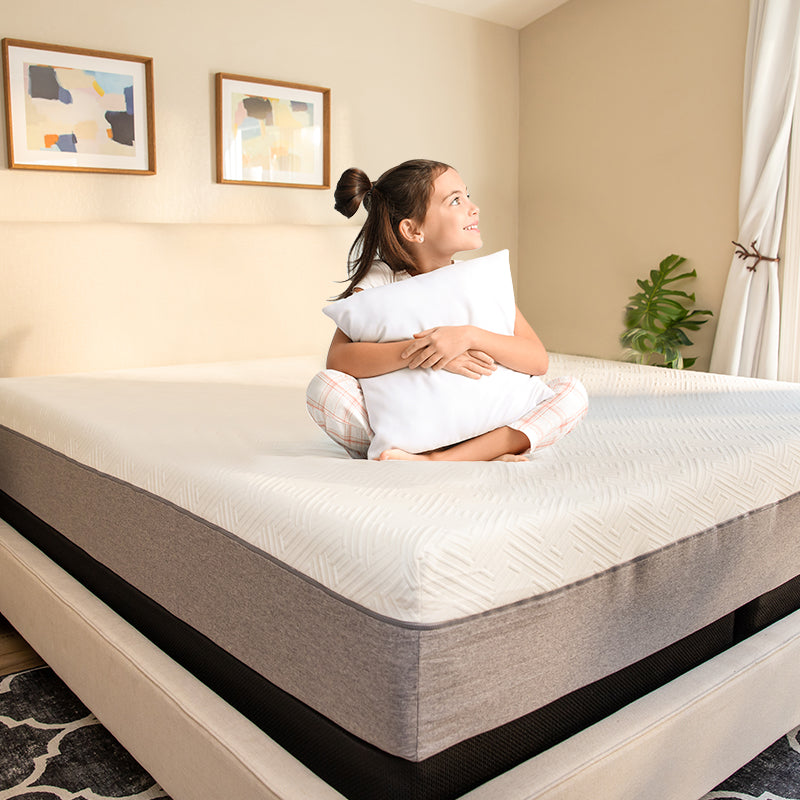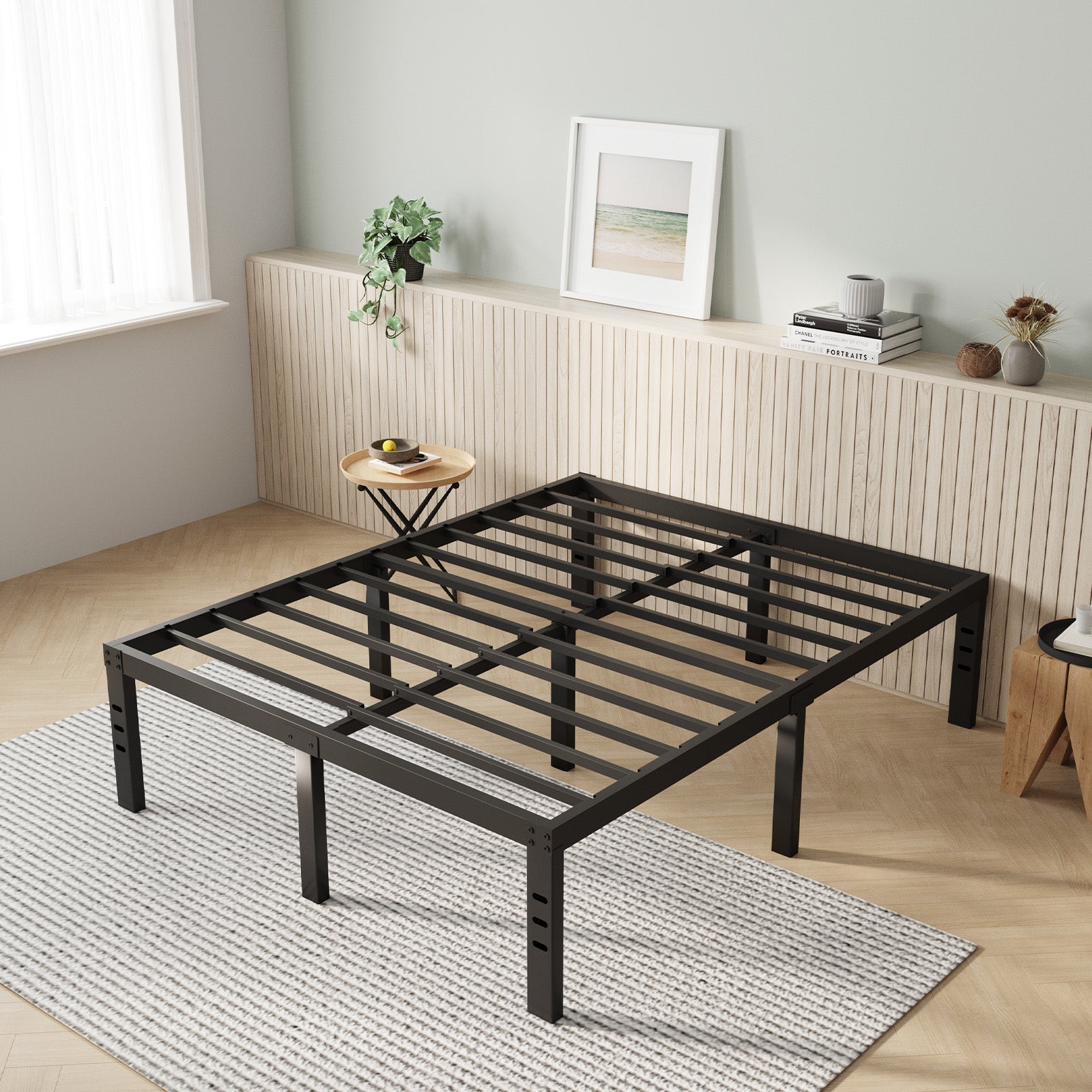No Products in the Cart
Deep Sleep Music
Getting a good night's sleep is a sign of good health, while sleep disorders can seriously affect the quality of life and reduce work efficiency. Sleep medicine has already formed and is gradually developing and growing. Let's take a look at how applying music has gone from simple relaxation and pleasantness to a professional-level to help people with sleep disorders.

What is Deep Sleep Music?
Music can help people relieve stress and is a trendy and leisurely way to reduce stress. The most important role of "deep sleep music" for people is to use specific rhythms to sort out their cluttered thoughts. When the mind is as disordered as hair, using a simple music comb to comb it back and forth helps the soul to quickly gain clarity and ease.
Many people have sleep troubles such as poor sleep quality and shallow sleep. If people are mentally and physically tense, they cannot enter into smooth sleep. However, listening to comfortable music and smelling fragrant essential oils can effectively relax the mind and body.
Since sound can become a carrier to lead to sleep, initially, natural sounds such as the sound of a shallow stream and waves played on electronic pianos and other instruments were used. After about 20 minutes, the music gradually became quieter, followed by a pleasant wave echo, you will fall asleep in a daze after listening for about 10 minutes. Whether it's classical music like Beethoven's Moonlight Sonata, or the sound of rain, birds chirping, or the honking of a tram, many sounds can make people feel drowsy.
What is "Deep Sleep"?
The quality of sleep, not the length of time, determines whether it is good or bad. The crucial aspect of sleep that impacts our health is the night's "deep sleep." Six hours of deep sleep is far superior to 12 hours of light sleep. "Deep sleep" is the phase when the body sleeps the most soundly and peacefully. At this time, you can't hear any outside noise, and others will have a hard time waking you up. When you wake up, you'll feel refreshed and energized. During deep sleep, hormones are secreted in large quantities, immune cells and various damaged cells (especially brain cells) are repaired, fatigue is restored, energy is stored, the digestive system is busy absorbing nutrients, and waste is excreted in large quantities... "Deep sleep" helps children grow taller and develop their intelligence, gives young people abundant energy, strengthens the body of middle-aged people, and keeps older adults healthy and long-lived.

What Kind of Music is Good for Deep Sleep
Numerous researches have shown that the pace of the music has an impact. "Reputable studies find that music with a rhythm of about 60 beats per minute helps people fall asleep," claims Breus. As you drift off to sleep, your heart rate starts to calm down and go toward the 60 beats-per-minute levels. Therefore, slow music "tunes" your heartbeat to a sleep-inducing range. You may even purchase CDs or download music from Bedtime Beats that is paced at the recommended 60 beats per minute.
Stress, is something on your mind when you can't sleep, and listening to music to ease your emotions is a good way to relax, experts recommend that it is best to listen to music on the sofa or other places before you go to sleep, rather than listening to sleep at the same time. Because "habit" is an important factor affecting sleep, we usually give the brain stimulation while lying in bed to sleep, if you listen to music now, it may change this connection. In addition, although music is a kind of relaxation, but also a kind of stimulation, if the song and the past unpleasant experience have a connection, may stimulate the brain to start processing information, but instead increase the degree of wakefulness. Therefore, when you want to use music to relieve stress, it is best to listen to it on the sofa or other comfortable place, and then lie down on the bed when you feel like sleeping. And with a regular routine, avoid eating stimulating food before going to bed.
A recent study by a sleep laboratory to study the effects of music on sleep found that 37 participants listened to soft classical music in the bed, and although it helped them relax and fall asleep more easily and sleep better, many subjects also responded that after the experiment, they were used to listening to sound to fall asleep and could not sleep without listening to music. You can choose music in slow or soft tempo, with little change in strength and weakness, and less brass and percussion, while music in major keys can also easily cause a pleasant mood, but it is still necessary to feel comfortable and happy. Common songs in the slow major key such as Bach's “Song for the G String”, Schumann’s “Fantasia”, and Beethoven’s “Piano Sonata, Second Movement of Pathos”.

Is Music Work for Your Sleep
At present, the treatment of sleep disorders is mainly based on drugs. In recent years, certain progress has been made in exploring non-pharmacological therapies to improve sleep quality, especially music therapy has gained widespread attention at home and abroad for its advantages of low cost and few side effects, and research related to music therapy for sleep disorders is continuing at home and abroad.
A related paper "Effect of Music Therapy on Sleep Quality" published on June 1st,2019, pointed out the latest results of music therapy-related studies, which determined that music therapy can effectively increase the sleep quality of surveyed students. As one of the non-pharmacological treatments used to address sleep problems, music therapy is a painless, safe, and affordable treatment with no side effects and can be used in every area of health. When considering efficacy, music interventions appear to offer significant advantages for adults suffering from primary insomnia. Listening to music and music-related relaxation may be the best option for music intervention applications.

And then according to the paper “Effects of Relaxing Music on Healthy Sleep” published in NCBI on 24.6.2019 by a team from the Department of Psychology at the University of Fribourg, Switzerland, sleep disorders are very common in our society, with an increased prevalence in the elderly and in people with or suffering from mental illness. The use of sleep-enhancing drugs is problematic because their effectiveness decreases over time and can lead to addiction. Therefore, researchers need to empirically validate the effectiveness of non-drug and easy-to-implement tools to support healthy sleep. Music intervention at rest was effective in improving subjective sleep scores in patients with sleep discomfort, with subjects reporting greater subjective sleep capacity after music and a positive effect of music intervention on PSQI scores (Sleep Quality Rating Index).
Recommend
- Deep sleep light music with piano sound and ocean wave video
- The various landscape videos are the alpha brain waves of deep sleep music
- Alpha brainwave music mixed with the sound of water
- Various landscape videos are matched with natural beta wave deep sleep music
Dr. Christopher Winter, a researcher in neurology and sleep medicine, said BMR is measured after eight hours of sleep and under fasting and neutral temperature conditions so that the energy expended for rest is actually measured. During sleep, the body burns about 95 percent of the calories it does during simple rest.
Therefore, if you can find the average calorie consumption of a person at rest (for example 45 calories/hour just mentioned above), you can calculate the calories burned during sleep. According to the formula proposed by Dr. Christopher Winter:










